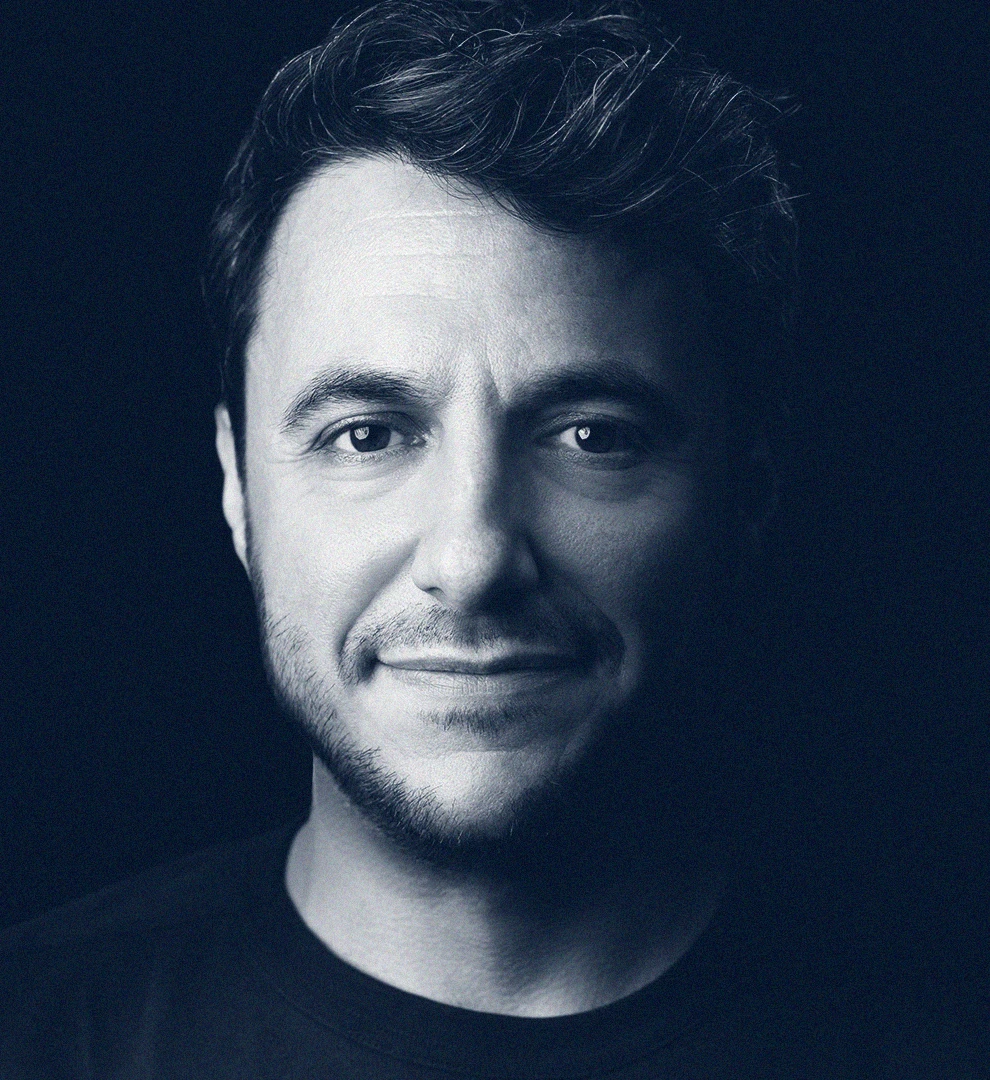University of Austin Assistant Professor of Bioastronautics Eliah Overbey hails from Chesterfield, Missouri, and received her Ph.D. in genome sciences from the University of Washington. She comes to UATX from her position as a research associate at Weill Cornell Medicine.
Dr. Overbey helps keep astronauts alive and healthy in space. Her most recent project analyzed data from Elon Musk’s SpaceX Inspiration4 mission. She also serves as Vice Chair of the Cornell Aerospace Medicine Biobank, which preserves biological samples from astronauts, and as Chief Scientific Officer at BioAstra, a nonprofit developing healthcare systems for space exploration.
Read on to learn more about Dr. Overbey’s education, teaching philosophy, and plans for launching UATX to the stars – including a new space exploration center designed to house a full-size Starship.
UATX: Could you briefly describe your field of bioastronautics and how it supports space exploration?
Dr. Eliah Overbey: Bioastronautics explores the intersection of biology, engineering, and aerospace technology to support human life and well-being in space. It covers areas such as life support systems, space medicine, and the physiological and psychological effects of space travel on astronauts.
The goal is to ensure that astronauts remain healthy, safe, and effective during space missions, whether they are briefly in orbit, on a long-duration mission to Mars, or living on a space station.
I have interests in many areas of the field, but my research specialization is in genomic changes experienced during space travel and habitation.
When did you know you wanted to work in space exploration? What drove your interest?
My interest in space exploration is rooted in what I see as the moral imperative to preserve human consciousness. On Earth, we face numerous existential threats—nuclear war and pandemics are prominent examples—that could potentially end humanity. I believe we've been fortunate to survive as long as we have, but we need to seek new frontiers.
My path toward space exploration began during graduate school when I read the news that NASA astronaut Dr. Kate Rubins had performed the first DNA sequencing experiment aboard the International Space Station. Fascinated by this, I began to explore the challenges of maintaining human health on long-duration space missions and the prospects for permanent space habitation. I quickly realized the vast scope of critical yet unresolved issues in this field, cementing my commitment to contributing to this vital area of research.
You majored in computer science at the University of San Diego. What is one of your fondest memories of that time in your life?
One of my fondest memories from university involves the student projects in which I was active, particularly a programming puzzle competition for first-year students. The atmosphere during these competitions was electric—filled with energy, excitement, and a genuine eagerness to learn.
Who have been some of your mentors throughout your career? What have they taught you?
I’ve been fortunate to have a long list of mentors throughout my career. Among the standouts is Dr. Cristina Valensisi, a postdoctoral fellow during my Ph.D. studies. Dr. Valensisi was key to my mastery of laboratory cell culture techniques. She dedicated hours to meticulously observing my work, ensuring I performed each task with precision. Her relentless attention to detail sharpened my technical skills and heightened my awareness of my every movement during lab procedures. This foundational training has been crucial to my success in scientific research.
How would you describe your teaching philosophy?
My teaching philosophy centers on the power of hands-on experience. As a college student, I found that I learned most effectively through practical challenges like writing and debugging code far more than from lectures and textbooks.
During my graduate studies, I struggled to grasp the nuances of genomic data until I began conducting lab work myself. Once I began culturing cells, isolating DNA and RNA, and conducting sequencing experiments, the abstract ideas I had read about crystallized into clear, practical understanding. I bring this approach into my teaching, emphasizing active participation and practical experience to help students connect theory with real-world application.
What attracted you to the University of Austin?
I was drawn to the University of Austin by the promise of an academic environment where viewpoint diversity and spirited debate are not only encouraged but celebrated.
When I embarked on my academic career, I envisioned universities as frontiers of new ideas, where no concept was off-limits. However, my experiences at top-tier universities have revealed a tendency towards intellectual monocultures. I searched for a university committed to an alternative ethos—one where questioning established norms and cultivating a diverse array of viewpoints are integral to its identity.
What will be distinctive about a University of Austin education?
I spend a lot of time thinking about space colonization, and I’ve come to understand that the challenge of space colonization extends beyond merely overcoming health hurdles to inhabit outer space. It’s equally about the qualities of these pioneers—their ideas, dispositions, and ideologies.
A University of Austin education will be distinctive in its commitment to developing leaders who are adept at viewing problems from multiple perspectives, comfortable challenging prevailing groupthink, and capable of making independent, well-considered decisions—skills that are crucial in high-stakes environments where even immediate communication with Earth is not an option.
Growing up, I was inspired by the leadership exemplified in "Star Trek." I’ve recently found myself considering which educational institutions could consistently cultivate leaders like Captain Picard or Captain Janeway.
I cannot confidently state that our current institutions are up to that task.
My conclusion is that the University of Austin aspires to be such a place, forging a new frontier in education by preparing the next generation of explorers and visionaries.
What does it mean to be a founding faculty member? Could you offer some examples of what that will involve for you?
Being a founding faculty member means shaping the academic and practical learning environments from the ground up. My role involves not only designing optimal curricula and creating an engaging teaching atmosphere but also designing the physical spaces necessary for hands-on scientific and engineering education.
For example, I am spearheading the development of a genomic sequencing center. This facility will give students the tools to conduct DNA and RNA sequencing experiments, essential for studies in genomics and epigenetics.
These facilities will support student projects in their Polaris Projects and other educational activities, providing a foundation for real-world scientific inquiry and innovation.
What do you hope students remember about their UATX experience 20 years after graduating?
I hope that students fondly recall the creative environment and freedom they experienced at UATX. I want them to remember how they were encouraged to pursue questions that captivated their interest, to experiment with new ideas, to make mistakes, and to learn from them.
Echoing Thomas Edison's words, “I never once failed at making a light bulb. I just found out 99 ways not to make one,” I wish for all our students to cherish the persistence they developed here—overcoming challenges and turning their innovative ideas into reality.
Can you explain more about what you meant when you wrote that you are ready to “build a space program for students” at UATX?
As we enter a new era of space exploration characterized by reduced launch costs, there's a burgeoning opportunity for space entrepreneurship and the development of new businesses that operate in orbit, on the moon, on Mars, and beyond. This shift from historical, one-off missions like Apollo to sustainable, economically supported endeavors presents a unique opportunity for our students.
At UATX, we are poised to build a space program that enables students to develop projects that are not only technologically innovative but also economically viable. Through their Polaris Projects and collaborations with industry partners, students will have the chance to pioneer sustainable solutions and ventures in this new space economy.
What does Austin already offer students in this space? What do you hope to build in the next decade?
UATX is ideally positioned within Texas' thriving spaceflight community, creating unique opportunities for our students. Firefly Aerospace's headquarters and various SpaceX facilities are located close to Austin.
We are a short drive from major space exploration hubs. Six hours south lies SpaceX's Gateway to Mars and the Starship development center in Boca Chica; eight hours west, we have Blue Origin's Launch Site 1 in West Texas, where New Shepard missions are launched; and less than three hours east is Houston, home to the NASA Johnson Space Center. This center not only hosts our astronauts and operates the International Space Station but is also part of a dynamic space ecosystem that includes Axiom Space, which charters private ISS missions, and Intuitive Machines, noted for their recent successful lunar landing.
Over the next decade, UATX aims to significantly expand our capabilities, starting with establishing a research center for astronaut genomics.
Our vision extends to developing a comprehensive center for starship mission planning, where students will design and prepare a flight-ready Starship mission.
As we grow beyond the Scarbrough building and break ground on a new campus, we plan to construct a state-of-the-art facility designed to house a full-size Starship.
This facility will serve as a workshop for students to engage in designing missions, testing novel hardware for research and entrepreneurial pursuits, and conducting full-scale mission simulations.


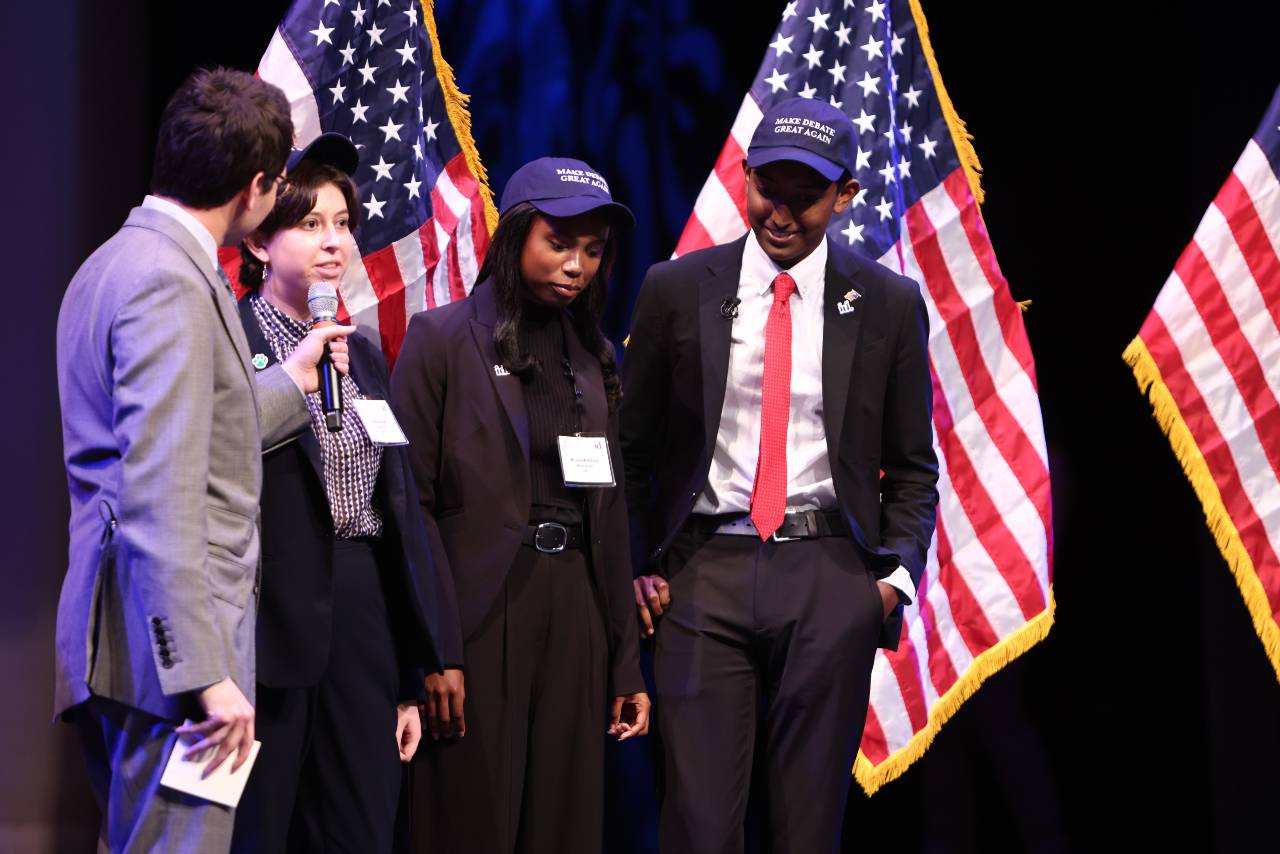


.jpg)
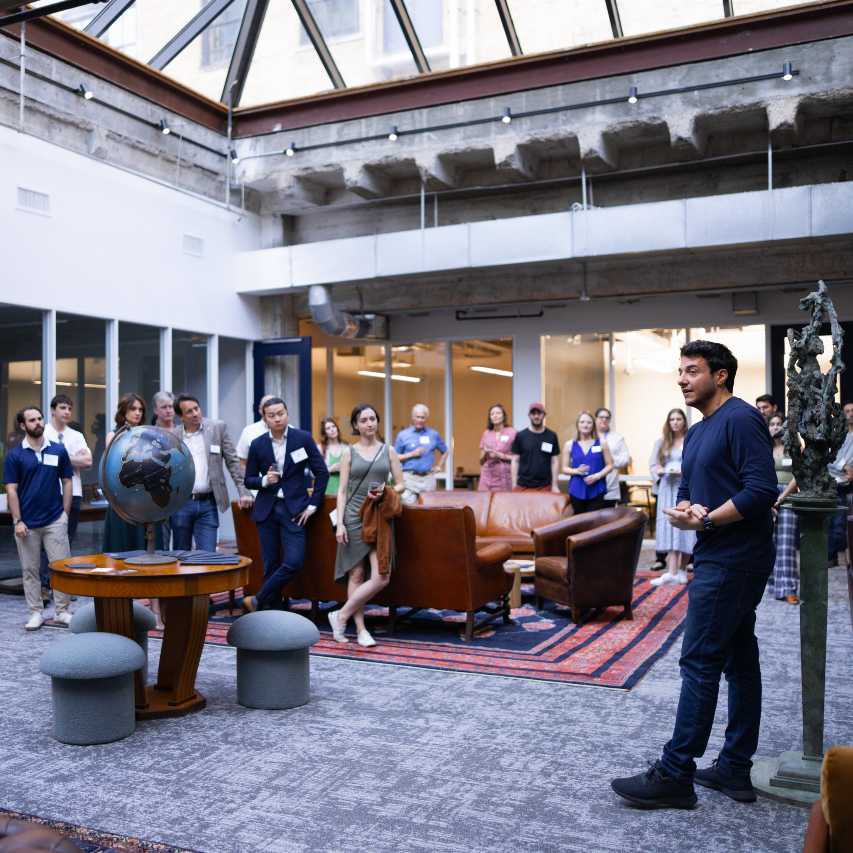
.jpg)
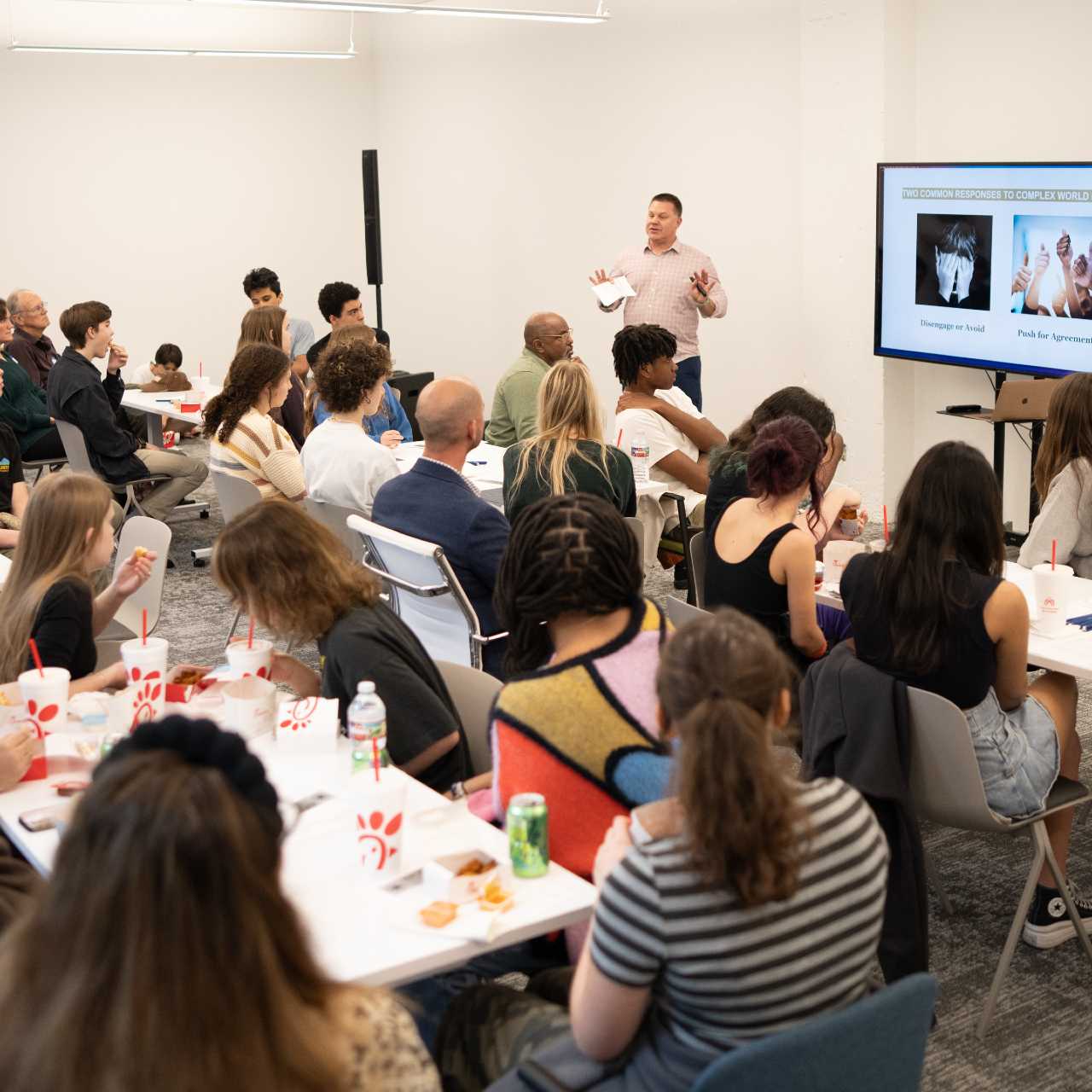

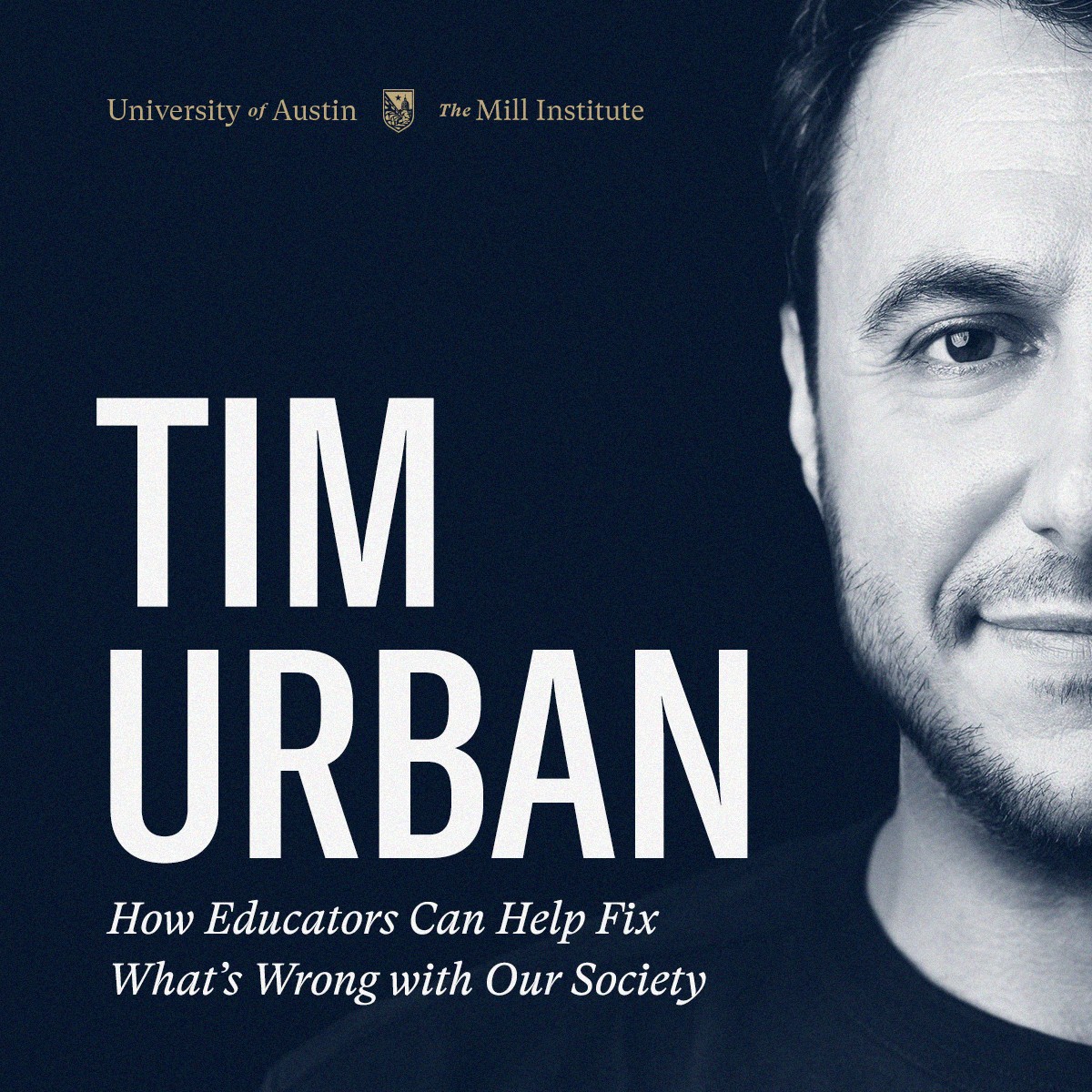
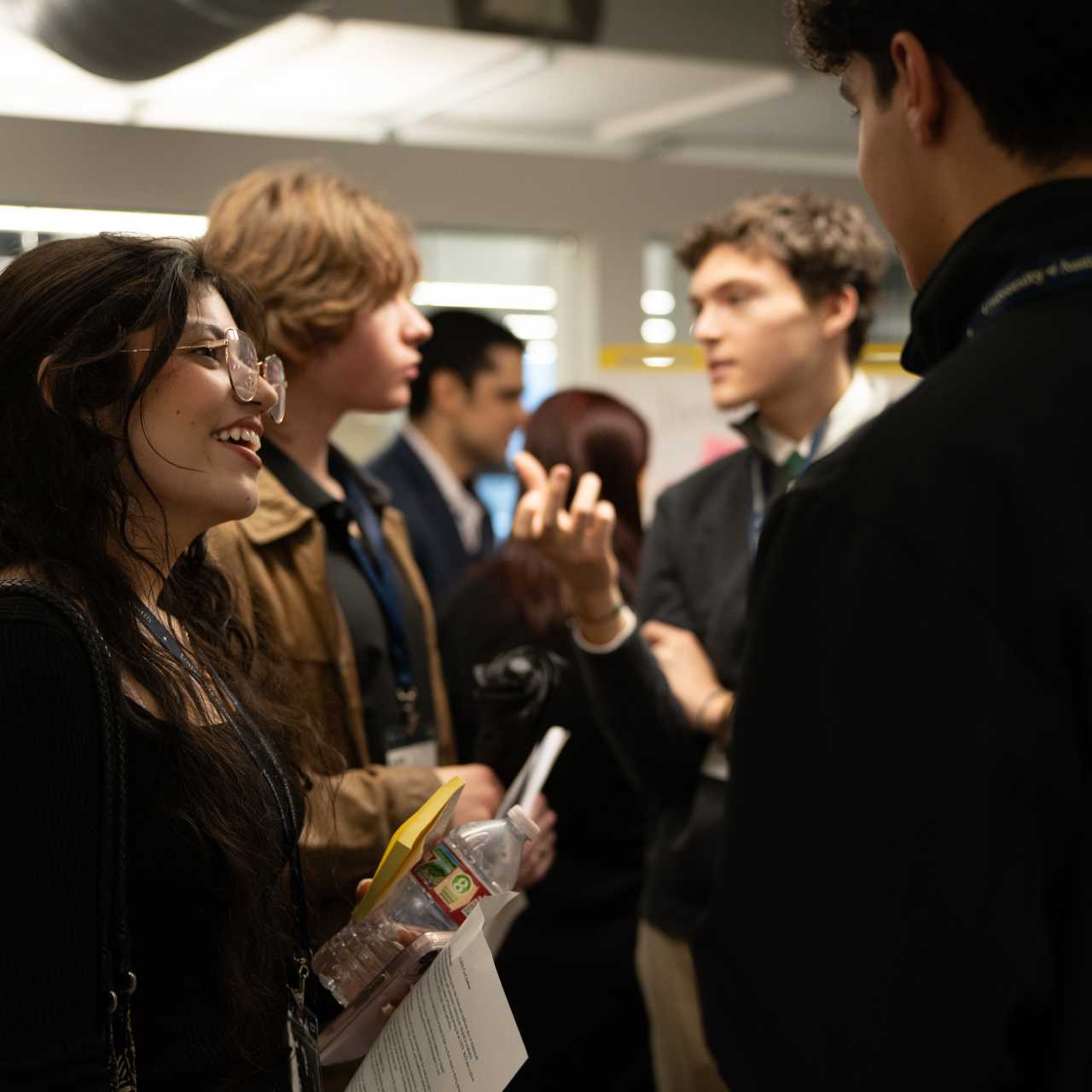
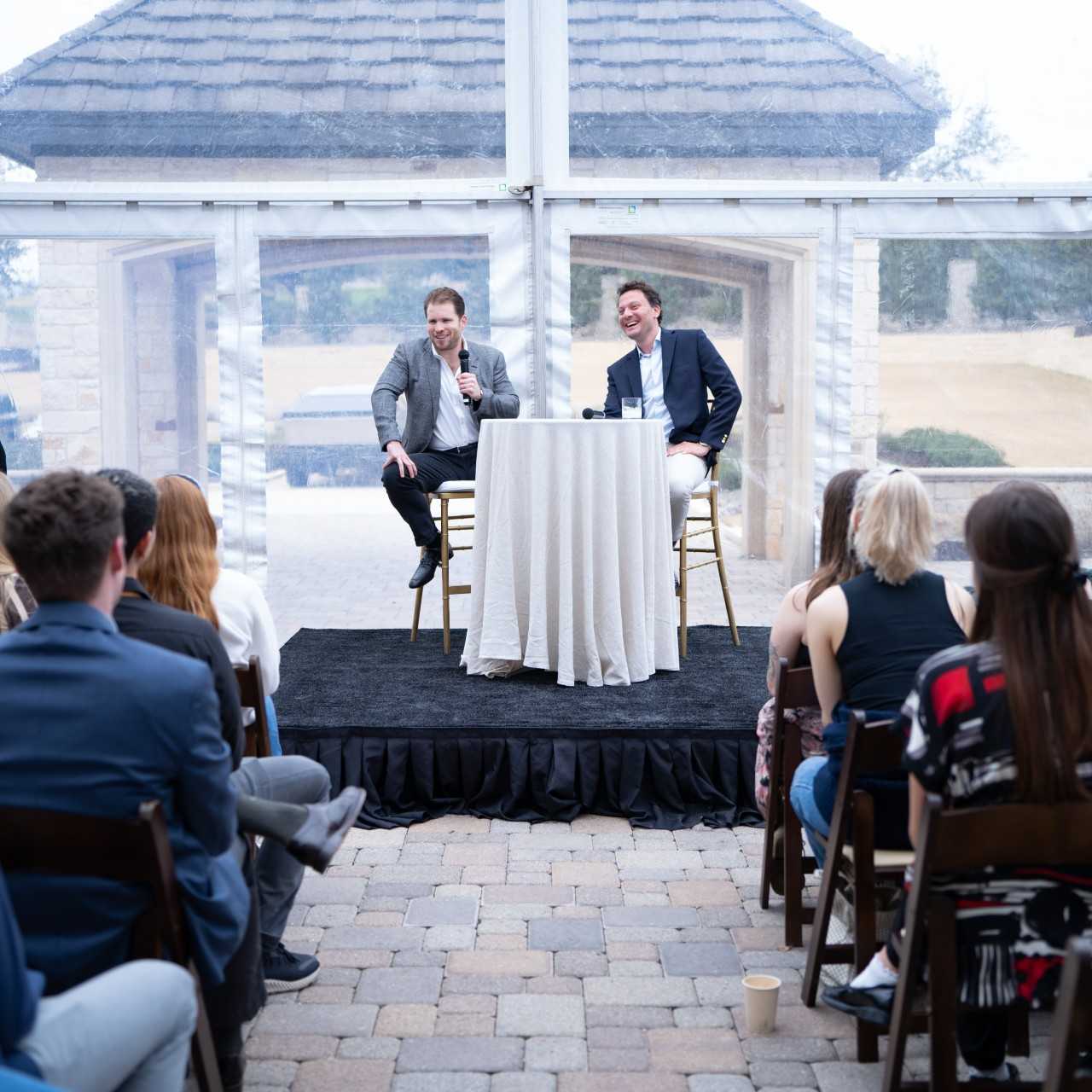
.jpeg)
